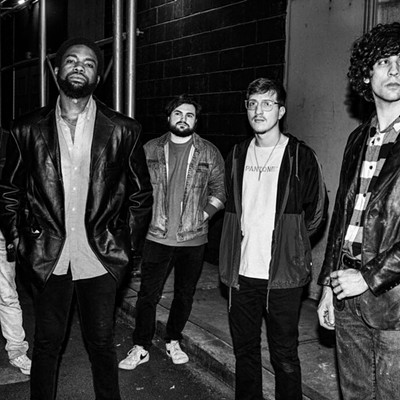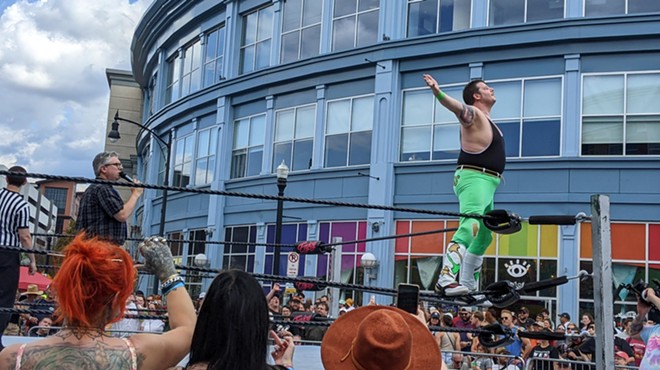By the time Michael Cunningham, the Pulitzer Prize-winning author of The Hours, gets done eviscerating his 1990 first novel, A Home at the End of the World, into a screenplay, and by the time its producers get done trimming 120 minutes of film down to a fleet 92, there's not much left of his beautifully sad, emotionally complex story of two suburban Cleveland friends, who meet in 1974 as young teenagers and who, by the mid-1980s, have redefined the notion of love.
No one who's read Cunningham's book will be surprised that it doesn't adapt well: Told from four points of view, and written in the author's almost ethereal prose style, it's the sort of book that requires less intrusive casting than Colin Farrell, who's too effortlessly charming, and Robin Wright Penn. But even with unknown actors, and with its full length (or more) restored, no commercial version of Home could aptly service the author's difficult, perhaps impossible, book.
Although Jonathan (Dallas Roberts) is certainly Cunningham's surrogate in the story, Bobby (Farrell) is its enigmatic heart. Jon, who is gay, lives with his parents (Sissy Spacek, Matt Frewer) in middle-class normalcy. Bobby lives across town with his quasi-hippie parents and has a powerfully close relationship with his raffish teen-age brother, who's killed one night in 1967 in a bloody freak accident. In junior high a few years later, Bobby -- for reasons that not even Cunningham seems to know -- zeroes in on Jon at lunch, and they quickly become inseparable.
This means music, marijuana and sex with each other through high school, and then, shortly after Jon graduates from NYU, living together in New York with Jon's gal pal Clare (Wright Penn), a rainbow-haired flake who wants to have Jon's baby. So when Bobby gets her pregnant, the trio agrees to create an experimental life together in a charming old fixer-upper near Woodstock.
The version of this story directed by Michael Mayer includes most of Cunningham's plot highlights, some of them slightly re-imagined for dramatic effect, and none of them explored beneath the surface. (The novel makes it inevitable that Jon will contract AIDS; the movie makes it clear that he has it.) As a result we get a series of moments -- some exquisitely tender, some hastily expository, and some with subtle hints of deeper meaning -- that will leave you, at best, wanting to read the book.
Bobby's sexuality is the conundrum here, but I fear that Mayer doesn't proffer enough either to help us understand him or to make him sufficiently complex: For Bobby is Cunningham's ineffable (and slightly fantastic) spirit of a new age, a lonely soul who, in the immutable shadow of death, loves the person and not the gender. As a boy, he relished hugs from his big brother and fell asleep on his shoulder. As a man, he's just as freely physical with Jon and Clare, the two people he loves, no questions asked. 














